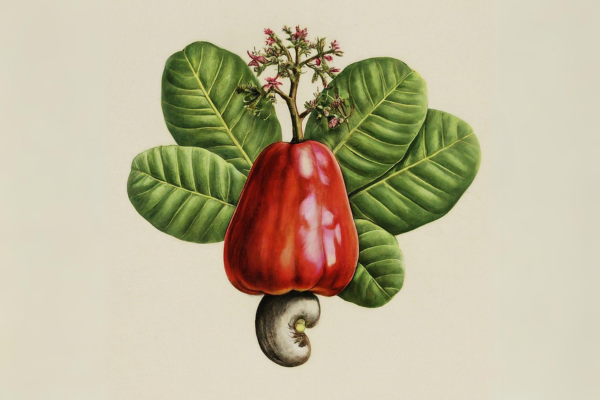Most people assume all cashew nuts are the same. In reality, the global industry divides cashews into only two meaningful categories: organic and conventional. These categories differ in their farming methods, level of transparency, and cost.
Cashew Coast goes further. We have created a third category—Conventional Traceable cashews—traceable to the farmgate. This category does not exist in the industry, and it sets a new benchmark for transparency in non-organic cashews.
Each type is distinguished by its unique production methods, its level of supply chain transparency, and its cost. Let's look at a brief breakdown before diving deeper into the details:
- Organic cashews are traceable (usually to village level), environmentally beneficial, cultivated using natural farming practices, and certified by recognised organisations, making them pricier than other varieties.
- Conventional cashews, the most common and affordable option, often lack traceability and organic certification.
- Conventional Traceable cashews offer supply chain visibility, often adhere to sustainable practices, and are usually priced between the other two categories.
Understanding these differences is crucial for consumers and producers as the demand for sustainably and ethically sourced products grows. Let's examine what differentiates these cashew categories.
Organic Cashews
Organic cashews are grown without synthetic fertilisers or pesticides and must be certified by recognised organisations such as ECOCERT or Organic Crop Improvement Association (OCIA). They are considered the most sustainable category in the industry and command a price premium.
However, the industry norm for organic cashews is limited traceability. Even certified organic nuts are typically traceable only to the village or cooperative, not to individual farms.
Key features of industry organic cashews:
- Natural farming methods
- Intercropping and beekeeping encouraged
- Certification required
- Price premium (can be up to 50% higher)
Three main organic sub-categories:
- Organic
- Organic Naturland
- Organic Fairtrade
Cashew Coast improvement:
All our organic cashews are fully traceable to the farmgate thanks to our digital mapping of every enrolled plantation.
Conventional Cashews
Conventional cashews dominate the global market. They are produced using standard farming methods, may involve synthetic inputs, and are handled by chains of middlemen that obscure origin.
In the global industry, conventional cashews are not traceable. Buyers rarely know which farmers grew them—or even which villages they came from.
Key features of industry conventional cashews:
- Standard farming practices
- May use synthetic chemicals
- No organic certification
- No traceability guarantee
- Lower and more variable quality
- Lowest cost
Cashew Coast improvement:
Even in our conventional supply chain, we never lose visibility. When we buy directly from farmers, we can always trace to the village or cooperative, far above industry norms.
- Direct purchase from farmers not yet enrolled in our programme
- Farms are not mapped
- But we still guarantee village-level traceability
- Much higher transparency than industry-standard conventional
- Bought from third parties only in rare circumstances
- Still traced back to the village of origin
- Avoids the complete opacity of industry conventional supply chains
Conventional Traceable Cashews
This category does not exist in the global industry. Cashew Coast created it to bridge the gap between organic and conventional, offering transparency normally reserved for certified products.
What defines this category?
- Grown by farmers enrolled in our programme
- Every plantation is digitally mapped in our system
- Full traceability to the farmgate, just like our organic cashews
- Standard (non-organic) farming practices, but with much better visibility
- Supported by strong food safety certifications (HACCP, BRC, SMETA)
This new category offers the transparency of organic cashews—without the organic certification premium. It redefines what “conventional” can mean.
| Criteria | Industry Organic | Cashew Coast Organic | Industry Conventional | Cashew Coast Conventional Traceable | Cashew Coast Conventional |
|---|---|---|---|---|---|
| Farming Methods | Natural, no synthetic inputs | Standard (may use synthetic inputs) | Standard farming practices |
||
| Organic Certification | Required | None | None | None | |
| Traceability | ✔ Yes |
✔ Yes |
✖ No | ✔ Yes | ✔ Yes |
| Village Traceability | ✔ Yes |
✔ Yes |
✖ No | ✔ Yes | ✔ Yes |
| Farmgate Traceability | ✖ No |
✔ Yes |
✖ No | ✔ Yes | ✖ No |
| Digital Farm Mapping | Rare | ✔ Yes — all plantations mapped | None | ✔ Yes — all plantations mapped | ✖ Farmers not mapped |
Cashew Quality in Côte d'Ivoire
In Côte d'Ivoire, the choice between these types of cashews depends on factors such as market demand, price premiums, and the ability to meet certification requirements.
While organic cashews offer the highest price premium with the greatest environmental benefits, traceable conventional cashews straddle sustainability and affordability. Conventional cashews remain the most widely available option, but lack the added value of traceability or organic certification.
Why Cashew Coast’s Model Is Different
Cashew Coast has built a system where traceability is the default, not the exception. Whether the cashew is organic, conventional traceable, or conventional simple, we always know where it comes from and who grew it.
- Traceable/organic: Traceable to the farm/plantation, i.e., farms that are enrolled in our programme and their plantations that are mapped into our system.
- Conventional simple: We buy directly from farmers, but if they're not enrolled in our program, their plantations won't be mapped onto our system. This means we technically trace back only to the village, but in reality, we know precisely who we buy from (because we pay them directly) and which farms the cashews come from.
- Conventional: We buy a very small quantity of nuts (less than 10%) from third parties when required, usually caused by unforeseen events like weather, government intervention, and market speculation. Even then, we can trace our cashews back to the originating village.
Cashew Coast – Producing Organic Cashews that Benefit All
At Cashew Coast, we've firmly positioned ourselves in the organic cashew camp because we believe it's the best way to create a sustainable and ethical future for the cashew industry. Our commitment to organic practices goes beyond just avoiding pesticides.
We take a holistic approach that benefits our farmers, customers, and the environment.
Better for the Planet
By choosing organic cultivation methods, we can promote biodiversity through intercropping and beekeeping, enhance cashew yields, and create a more resilient ecosystem. Our circular-economy approach, which includes composting cashew apples and using cashew shells to generate energy, allows us to minimise waste and maximise resource efficiency.
Better for Ethics & Food Safety
Moreover, our organic cashews are fully traceable, giving our customers peace of mind about the origin and quality of their food. This transparency, our high food safety standards, and our certifications set us apart in the market. We're not just selling cashews – we're offering a product that embodies our values of sustainability, fairness, and quality.
Better for Our Farmers
By investing in organic cashew production, we're also investing in the long-term well-being of our farming communities. Our demo plantations and tree nurseries are helping farmers adapt to climate change and increase their yields, without expanding into new territories, thus combating deforestation.
Better for the Future
In essence, our position in the organic cashew sector reflects our vision for a better future, in which delicious, high-quality cashews are produced in harmony with nature, supporting local communities and meeting the highest food safety and sustainability standards.
This is the Cashew Coast way, and we're proud to lead the charge in organic cashew production in Côte d'Ivoire.




